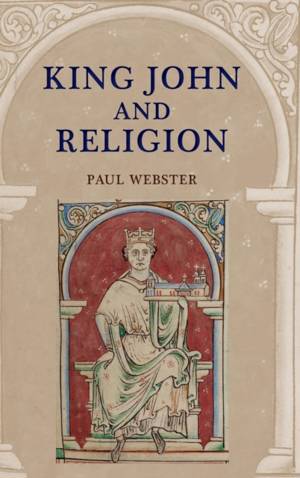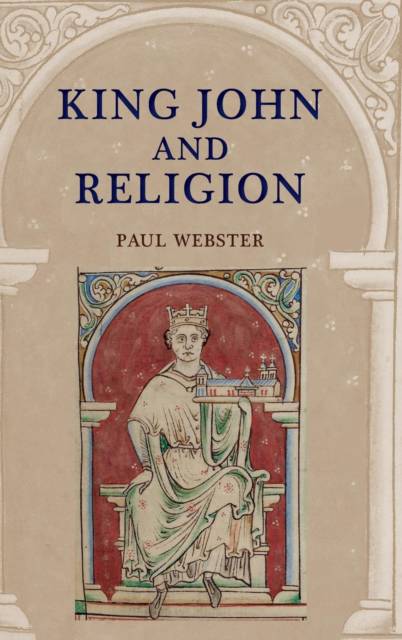
Bedankt voor het vertrouwen het afgelopen jaar! Om jou te bedanken bieden we GRATIS verzending (in België) aan op alles gedurende de hele maand januari.
- Afhalen na 1 uur in een winkel met voorraad
- In januari gratis thuislevering in België
- Ruim aanbod met 7 miljoen producten
Bedankt voor het vertrouwen het afgelopen jaar! Om jou te bedanken bieden we GRATIS verzending (in België) aan op alles gedurende de hele maand januari.
- Afhalen na 1 uur in een winkel met voorraad
- In januari gratis thuislevering in België
- Ruim aanbod met 7 miljoen producten
Zoeken
Omschrijving
King John has been perceived as one of England's most notorious monarchs. Medieval writers and later historians condemn him as a tyrant, seeing his long-running dispute with the church as evidence of a king who showed little regard for his faith. This book takes issue with orthodox opinion, arguing that in matters of religion, the critique obscures the evidence for a ruler who realized that outward manifestations of faith were an important part of kingship. It demonstrates that John maintained chapels and chaplains, prayed at shrines of the saints, kept his own collection of holy relics, endowed masses, founded and supported religious houses, and fed the poor - providing for his soul and emphasising his aura of authority. In these areas, he ranks alongside many other medieval rulers. The book also presents a major reassessment of the king's dispute with the church, when England was subject to a general interdict, and the king was excommunicate, the severest sanctions the medieval church could impose. It reveals the lasting damage to the king's reputation, but also shows how royal religious activity continued whilst king and pope were at loggerheads. Furthermore, despite his vilification since his death, there were those prepared to honour John's memory, during the medieval period and beyond. Dr Paul Webster is a Teaching Associate at Cardiff University, in the Cardiff School of History, Archaeology and Religion.
Specificaties
Betrokkenen
- Auteur(s):
- Uitgeverij:
Inhoud
- Aantal bladzijden:
- 269
- Taal:
- Engels
- Reeks:
- Reeksnummer:
- nr. 43
Eigenschappen
- Productcode (EAN):
- 9781783270293
- Verschijningsdatum:
- 18/06/2015
- Uitvoering:
- Hardcover
- Formaat:
- Genaaid
- Afmetingen:
- 156 mm x 234 mm
- Gewicht:
- 553 g

Alleen bij Standaard Boekhandel
+ 354 punten op je klantenkaart van Standaard Boekhandel
Beoordelingen
We publiceren alleen reviews die voldoen aan de voorwaarden voor reviews. Bekijk onze voorwaarden voor reviews.









